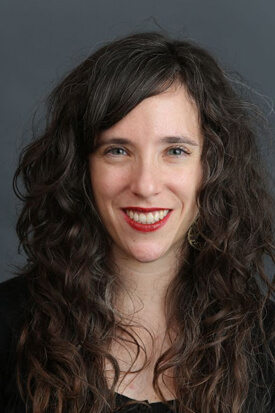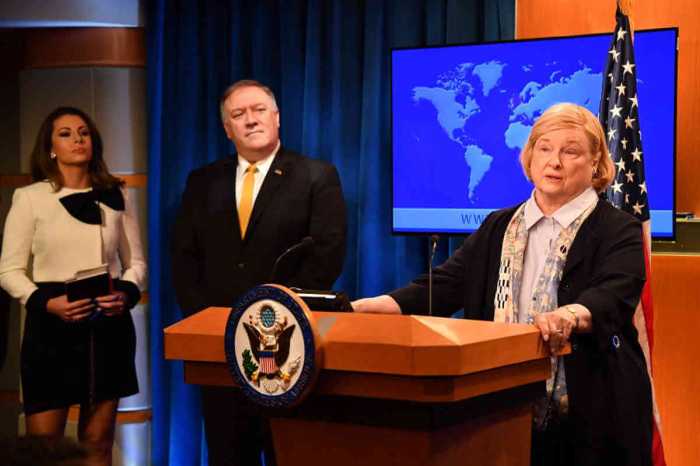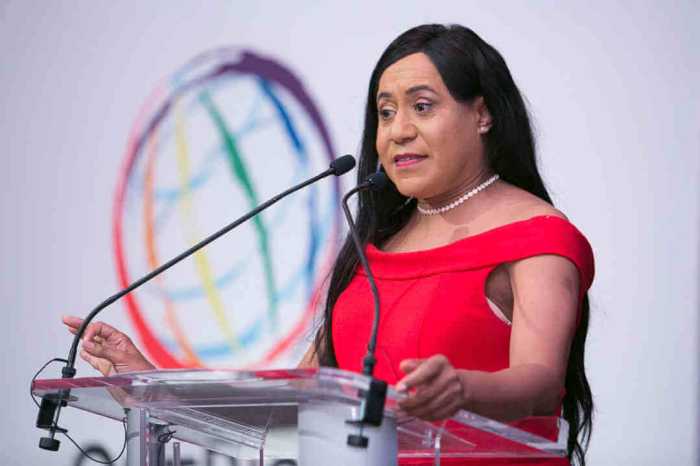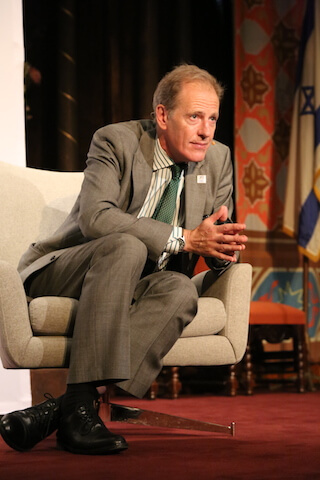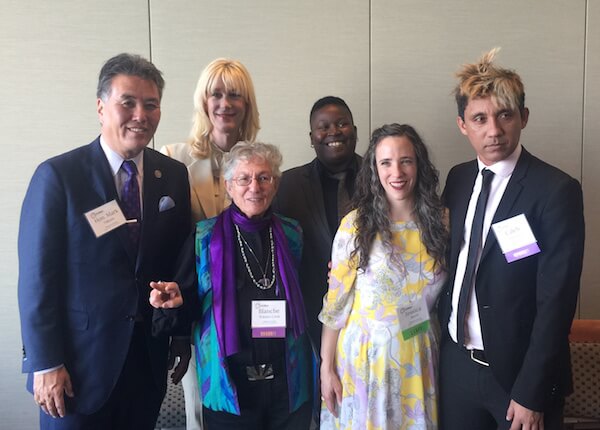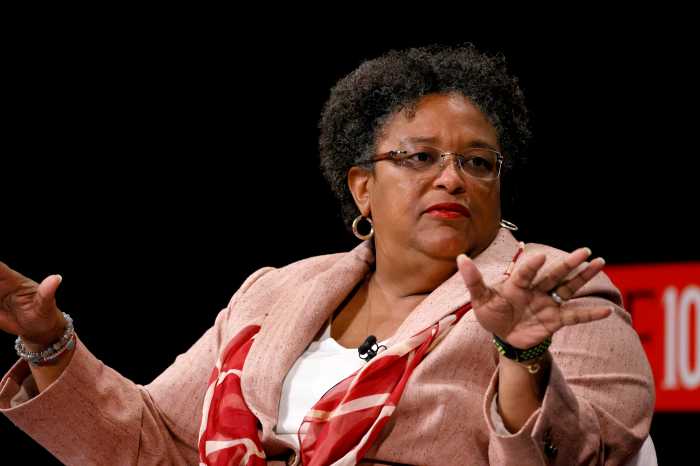Jessica Stern.
In late September, the International Gay and Lesbian Human Rights Commission (IGLHRC), a 22-year-old organization based in New York, announced that Jessica Stern, who went to work there two years ago as director of programs, would become the new executive director.
In a press release announcing her new position, Stern, who had served as acting executive director since late last year when Cary Alan Johnson departed the organization, said, “My vision for IGLHRC is that wherever power is –– government, business, or the family –– LGBT people must be there, too, demanding that our rights are protected, that we can live safely, and that the world recognizes our dignity.”
Prior to joining IGLHRC, Stern worked on international LGBT issues at Human Rights Watch and authored a report on police brutality against LGBT Americans, titled “Stonewalled,” while at Amnesty International. She also worked on women’s rights issues at Rutgers University’s Center for Women’s Global Leadership and with Control Ciudadano in Montevideo, Uruguay. Stern began her career as a welfare rights community organizer in Philadelphia and then campaigned for electoral reform at the Center for Constitutional Rights following the disputed 2000 presidential election. Educated in the US and Mexico, she earned a master’s degree in human rights at the London School of Economics.
In the September 24 IGLHRC release naming Stern, the group wrote, “Over the past several years, there have been seismic advances in LGBT rights at local, regional, and international levels.” In an interview with Gay City News two days later, she confirmed that the word “seismic” had been “carefully chosen.”
“There has been very substantial progress,” she said, both in “the formation and proliferation of LGBT groups on the ground” and in the formal recognition of LGBT rights and claims internationally. There has also, Stern acknowledged, been “backlash.”
Among the institutional responses recognizing LGBT lives, she mentioned actions by both the United Nations and the Inter-American Court of Human Rights.
In late 2010, a standing United Nations resolution condemning extrajudicial killings –– those committed outside the rule of law –– was amended in a UN committee to delete language regarding sexual orientation that had been added in 1999 at the urging of the world body’s Special Rapporteur on Torture. The 2010 action was pressed by members of the Organization of the Islamic Conference and the UN’s African Regional Group.
Shortly after the sexual orientation language was scuttled, the US ambassador to the UN, Susan Rice, initiated a move to have the General Assembly revisit the issue, which resulted in its restoration with the support of 94 nations. In June 2011, the UN Human Rights Council voted to carry out a global study of human rights violations motivated by sexual orientation and gender identity. The UN has not yet acted, however, on a resolution, supported by 85 countries, calling for the decriminalization of homosexuality worldwide.
Since IGLHRC was granted formal consultative status with the UN Economic and Social Council, Stern has supervised shadow reports there examining LGBT rights violations in 18 countries.
At the Inter-American Court of Human Rights, IGLHRC filed an amicus brief on behalf of Karen Atala, an attorney and former judge in Chile whose maternal rights regarding her three daughters were voided when her ex-husband sued for custody after she moved in with her female partner. Atala’s victory at the Inter-American Court established that sexual orientation and gender identity are protected classes under the American Convention on Human Rights, a 1969 multilateral agreement among 24 Western Hemisphere nations –– one never ratified by the US or Canada.
In the US, Stern said, the Obama administration’s policies on international LGBT rights –– particularly as articulated in a December 2011 Executive Branch memorandum from the president and an accompanying speech by Secretary of State Hillary Clinton to a UN body in Geneva –– represent “a paradigmatic change.” She emphasized that the principles laid out in Obama’s directive form “a considered and holistic strategy, not just incremental, here-and-there change. LGBT people have very specific needs that should not be just an afterthought.”
Stern said she has been invited to speak at the State Department’s Foreign Service Institute, the nation’s leading training ground for diplomats. The input requested of her was substantive, one example, she said, of a “profound commitment” on the Obama administration’s part. The department’s Bureau of Democracy, Human Rights, and Labor recently put out RFPs for four LGBT rights grants totaling $1.5 million –– “a lot of money” in human rights work, Stern said.
Even under the Bush administration, generally indifferent and often hostile to LGBT issues, advocates made progress with State Department officials, based on “common ground” over issues of persecution and violence. Now, she said, “People are happy to take our calls –– and they call us. That is something incredible.”
Stern revisited one issue regarding the president’s 2011 memorandum she earlier spoke about to Gay City News. While the memo stated that “agencies involved with foreign aid… shall enhance their ongoing efforts to… build respect for the human rights of LGBT persons,” she argued at the time that some news reports and online discussions “misinterpreted” that language. “To be clear, there were no indications of tying aid to conditions or of cutting aid,” she said last year.
Any suggestion that US foreign aid be tied to specific LGBT-related issues, Stern said in her recent interview with the newspaper, “sets the LGBT community against other groups. It’s not true that gays don’t favor clean water. That creates a dangerous misunderstanding. It reduces the reality of LGBT lives to just being gay.” Last December, Stern spoke of the risk of “backlash” inspired by an unsophisticated exercise of American influence. In September, she noted, “Bilateral negotiations on populations as vulnerable as the LGBT community must be reflective of a nuanced understanding.” Obama’s memo and Clinton’s speech, she repeated, were nuanced.
Backlash, of course, is possible not only as a bristling reaction to US “interference,” but also in response to the rise of domestic LGBT visibility. “With audacity comes reaction,” Stern observed, noting the escalation of lethal and state-sponsored or state-encouraged homophobia in societies such as Uganda and Zimbabwe. While homophobia isn’t new, its character is, she argued. “The flavor of the opposition has changed,” she said. “It’s opposition to something, not just to behaviors. Something that is a threat to the status quo.”
The role of anti-gay Christian fundamentalists from the West in encouraging resistance to gay rights advances in places like Africa is real, Stern said. In fact, at a September conference in Washington, advocates examined a graphic that “mapped satellites of Western homophobia” across the globe, infiltrating many parts of the developing world. Still, activists from such places reminded her that it is often “American narcissism to think we are the source of all good and evil.” LGBT activists from the developing world told the gathering, in essence, “We can grow our own homophobia, thank you.”
Asked whether she sees African and Islamic nations as having the most problematic records on LGBT issues, Stern responded that such a perspective “is not useful, though it is common. I fall into it, but there is no value in establishing a hierarchy of oppression.”
Limited resources at IGLHRC, for example, keep the group from translating many of its Latin American reports into English, which may leave the impression there are not serious problems in this hemisphere. South Africa, which offers constitutional protections based on sexual orientation, nevertheless suffers from massive problems caused by class differences and the extent of the HIV epidemic there. And in some Asian countries, she noted, ant-gay violence is typically carried out in private, but at “unacceptable” levels.
Asked about tensions in recent years between organized human rights groups and Western grassroots activists and journalists over how to approach LGBT rights crisis spots, Stern responded, “I think part of my job is to figure that out. I will plead new to the job.” In general terms, she warned against the risks of “misrepresenting someone’s life,” making errors in language translation, and “acting without a sense of accountability.”
Disparate parts of the world are more connected than ever, she said, but that’s not the same as different cultures experiencing sexual orientation and gender identity in identical ways. “We can use the same words, but they don’t necessary mean the same thing,” she said.
Laying out general guidelines for responsible global activism, Stern emphasized doing “no harm, talking to credible local people and doing what they say, and seeing yourself as part of a cooperative worldwide effort.”

